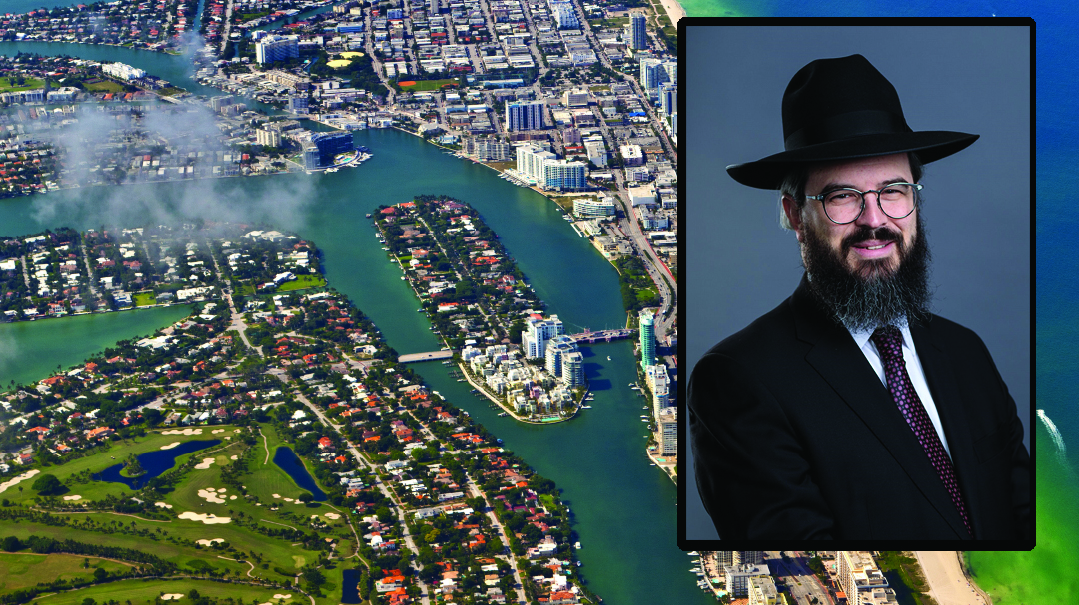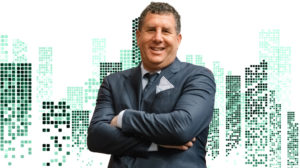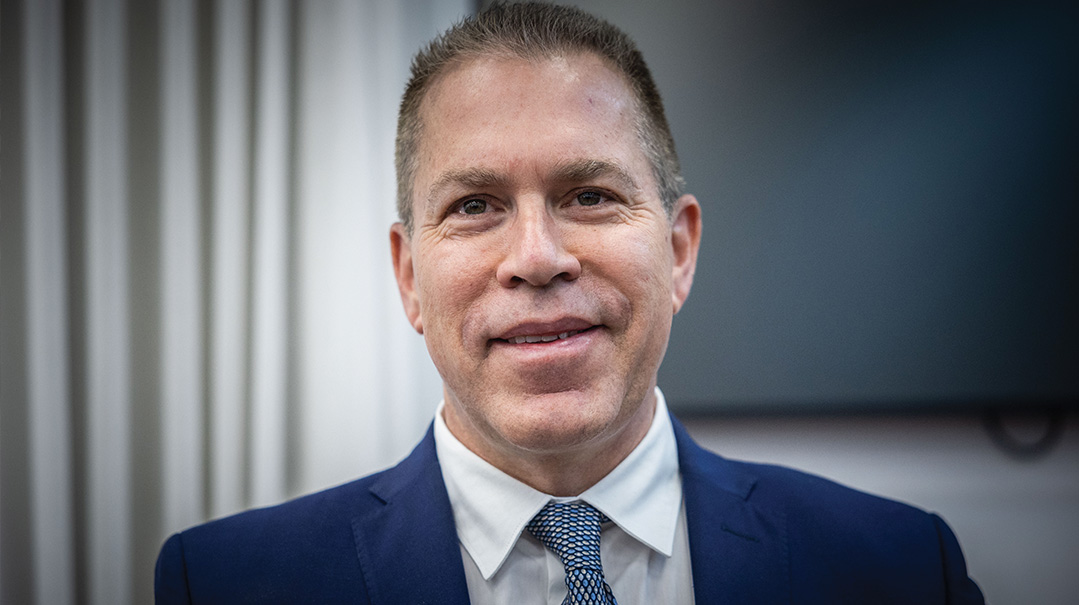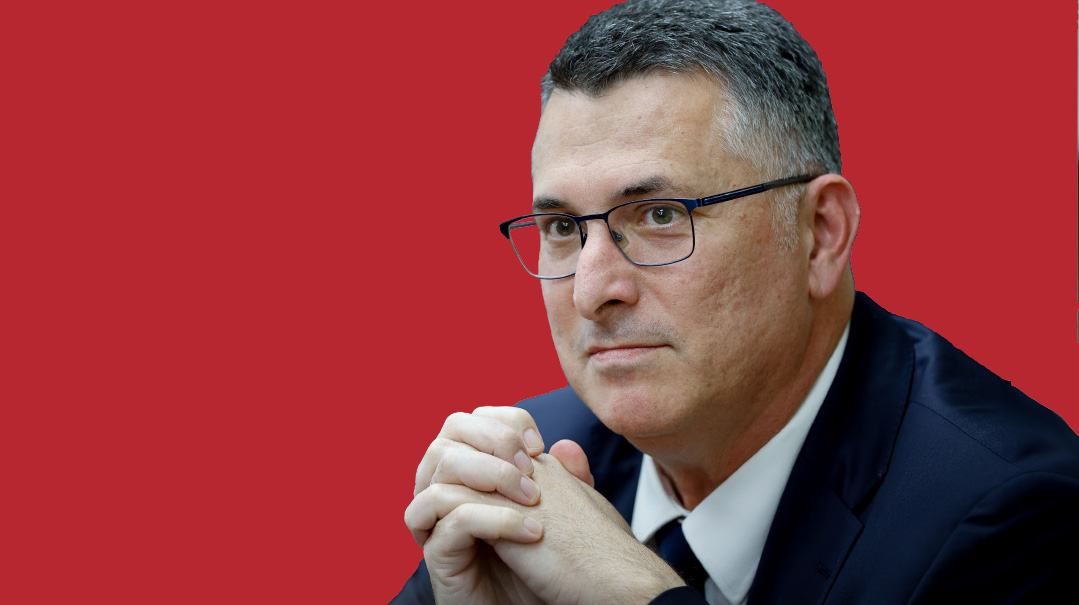Rabbi Moshe Matz: Is Florida the Next New York?

The director of Agudath Israel’s Florida office, he feels it’s his responsibility to shed sunlight on Florida realties

When our forefathers left Egypt, they headed for Eretz Yisrael. When their descendants departed from Europe, they came to New York. Cold New York with temperatures in the teens and summers that last but two months. Liberal New York with a legislature that refuses to help private school parents with tuition and a government on the cusp of slapping draconian regulations on yeshivos.
More and more people are eyeing Florida, the Sunshine State with a business-friendly governor and lawmakers about to pass another major voucher program. Developers are already planning what they bill as the first new chassidish community in Tampa Bay.
Not so fast, cautions Rabbi Matz. The director of Agudath Israel’s Florida office, he feels it’s his responsibility to shed sunlight on Florida realties. Miami, he noted, is still a developing community. Outside of tuition aid, government benefits are minimal. And the job market ain’t that great either.
There is no ballpark figure of how many frum Yidden live in the state, though Rabbi Matz estimates that there are over 10,000 families, with a school enrollment of between 7,000 and 8,000. House prices range from $1 million in costly areas such as Miami Beach to half that in North Miami Beach.
The past few months has seen an exodus of Jews from New York to Florida. What is Florida doing to welcome them?
Let me first give you an understanding of Florida and what infrastructure exists to enable us to welcome new families to a community.
South Florida is divided into three counties — Miami-Dade, Broward, and Palm Beach. Miami–Dade County has four main neighborhoods where the largest concentration of Yidden live — Miami Beach, Bal Harbor and Surfside, North Miami Beach, and Aventura. Broward has metropolitan Hollywood, and Palm Beach has Boca Raton, West Palm Beach, and Deerfield, which attracts a large number of people who are retired.
In Miami-Dade, we have quite a number of schools, yeshivos, and kollelim. They have baruch Hashem a tremendous infrastructure in terms of a Torah life. Restaurants and kosher supermarkets are in abundance. Schools over here are really working overtime to expand their ability to accept as many newcomers as they can.
Just to clarify, when you talk about a school accommodating new families, this is for a litvishe crowd, correct? In other words, a chassidishe family will not necessarily find what they are looking for and will have to build from scratch.
Right, for the most part. I would also say that there is a tremendous influx of Sephardim in South Florida. They are working to open their own schools. But a chassidishe family has to be prepared for now to send their children to the existing mosdos.
Are you referring to those people who advertised widely about a new chassidishe community in Tampa Bay and were supposed to have moved in in January?
Yes. I haven’t seen it get off the ground, but maybe they’re working behind the scenes.
What are Florida’s biggest attractions for a frum family?
People have been frustrated with the slow progress in the North in terms of Covid and the shutdowns, the weather, of course, and the high taxes. And the economy there is also not what it used to be. Florida is open, it’s active, the weather is always enticing. People come, they see there is a Torah community here, and they decide that this is where they would like to be.
We also have a voucher program in the state of Florida that is very substantial, and it really helps families with tuition. It will be increasing in terms of accessibility and income levels, and it will be something that more people will be eligible for. Mosdos are literally thriving because of it. This has been a very important part of what allows Florida to grow.
There is also a very favorable income tax rate there.
Right. There is no income tax. There is a real estate tax, there is a sales tax, but no income tax. On the other hand, we also have fewer government programs than you have in the New York area. We don’t have the level of special education resources that you have in other states. This is one of the biggest issues that comes up with people who are considering moving here.
So yes, we do not have an income tax. But not having an income tax means that we also have fewer programs. And this is something that has to be taken into account before making a decision whether to move to Florida.
What about other social programs, such as Medicaid, Section 8, and food stamps?
We have, but the supply is much more limited. Take Jersey Care, for instance. We have a Florida-based medical insurance program, but it is just not in the same league, in terms of reliability as health insurance.
I would add one more thing. Our job market is not huge, either. So it’s not like you can move to Florida and then start looking for a job. There are no multiple options to choose from in terms of employment.
Take retail, for example. New York has huge opportunities for people in retail, both to start businesses and to find jobs. Florida has very, very little of that.
Are there any big companies that employ a lot of heimishe people, such as B&H here in New York?
I wish. B&H is a retail store — we don’t have that over here, unfortunately. Believe it or not, Miami is still in some ways a growing community. It has yeshivos and schools, restaurants and supermarkets, but it’s still not New York.
And don’t forget about the hurricanes.
That’s right. Hurricanes are definitely a big issue over here. We don’t get too many actual hurricanes, but we get warnings that hurricanes are hitting, so we do a lot of stocking up.
During your time there, how many times do you remember when there has been serious talk in northern communities about moving to Florida?
This is the first time that I have come across this level of chatter.
I would guess this mirrors the overall spat between the governors of New York and Florida. Cuomo failed when it comes to the economy, taxes, and Covid, and DeSantis has made the case that his state is better on all three counts. I’m sure anxiety about yeshivah regulations are also convincing people that it may be time to leave New York.
There is no question that we have a state government that is very friendly to the Torah community, relates to our values, and understands things in a different way than governments in the Tristate area. This is a red state, after all; it is very conservative, very Republican, and we don’t have that many clashes in terms of policy. On the other hand, we have a lot of momentum to get things done.
(Originally featured in Mishpacha, Issue 855)
Oops! We could not locate your form.












